
When seeking financial assistance, many South Africans turn to personal loans as a flexible and accessible option. These loans generally fall into two categories: secured and unsecured. The difference lies in whether the borrower provides collateral to support the loan. Secured loans involve attaching an asset, such as a car, property, or an investment, to the agreement, often resulting in better rates and longer terms. Unsecured loans, however, are approved based on the borrower’s financial standing and do not require any form of security.
DISCLAIMER: All loan applications are subject to affordability assessments as required by the National Credit Act. Approval is not guaranteed and will depend on the applicant’s financial profile.
Key Takeaways
- Secured vs Unsecured Loans: Secured loans require collateral such as a home or vehicle and usually offer lower interest rates, while unsecured loans rely on the borrower’s credit profile and do not involve any pledged assets.
- Types of Unsecured Credit: South Africans have access to a variety of unsecured credit options, including personal loans, credit cards, microloans, overdrafts, student loans, and debt consolidation products.
- Responsible Borrowing Practices: Staying in control of unsecured debt involves budgeting before borrowing, setting up debit orders, avoiding multiple loans, and carefully tracking the total cost of credit.
What Are Secured And Unsecured Personal Loans In South Africa?
Personal loans provide a way to access funds when needed, but they are not all structured in the same manner. A secured personal loan involves offering an asset, such as a vehicle or home, as a form of security for the lender. This reduces the lender’s risk, often resulting in lower interest rates and more favourable repayment terms.
Unsecured personal loans, on the other hand, do not require any collateral. Instead, the lender evaluates your credit record, income, and financial stability to decide whether to approve the loan and what terms to offer.
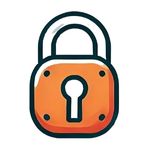
Secured Loans
Secured loans are typically used when a borrower needs access to a large sum of money, such as for vehicle financing or significant home upgrades. Banks like Absa and Standard Bank provide secured loan options, frequently offering them at lower interest rates due to the reduced risk on their side.
That said, these loans require collateral, which means your property or vehicle is at risk if you fall behind on payments. While this can be unsettling for some, others find the longer repayment terms, sometimes up to 20 years, and reduced monthly instalments to be a worthwhile trade-off.
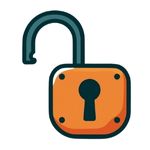
Unsecured Loans
An unsecured loan is a form of credit provided by South African financial institutions without requiring any form of collateral, such as a vehicle or property. Approval is generally based on the borrower’s credit profile and income stability, rather than the backing of a physical asset. These loans are commonly used for a wide range of purposes, including personal financial requirements or business-related costs.
Compared to secured loans, unsecured loans typically offer:
- Quicker processing: Since no collateral is needed, there’s no requirement to assess or verify assets, which reduces delays during application.
- Broader eligibility: Individuals without significant assets may still qualify, provided they have a satisfactory credit score and proof of regular income.
- Greater flexibility: These loans can be used for multiple purposes such as paying off other debts, covering emergency expenses, or making improvements to a home.
When trying to understand unsecured loans, it’s helpful to also explore how they compare to their counterpart, secured loans. If you’re still unsure about which option might suit your financial situation best, this comparison of secured vs unsecured loan will give you a clear picture of the risks, benefits, and requirements of each.
About Arcadia Finance
Easily secure your loan with Arcadia Finance, with no application fees and access to 19 trusted lenders, all registered with South Africa’s National Credit Regulator. Experience a simplified process and reliable loan options designed around your financial goals.

Types of Unsecured Loans in South Africa
Unsecured loans are financial products that do not require the borrower to provide collateral. In South Africa, several types of unsecured loans are available, each designed to meet specific financial needs. Below is an overview of the most common types:
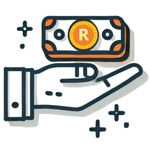
Personal Loans
Personal loans can be used for various purposes, such as covering unexpected expenses, funding home improvements, or financing special occasions. These loans are typically repaid in fixed monthly instalments over a predetermined period, which can range from 12 to 84 months. The interest rates on personal loans vary based on the borrower’s credit profile and the lending institution’s policies.
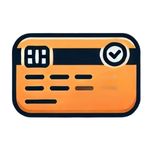
Credit Cards
Credit cards offer a revolving line of credit, allowing borrowers to make purchases up to a set limit and repay the amount over time. Interest is charged on the outstanding balance if not paid in full each month. Credit cards are widely accepted and provide flexibility in managing day-to-day expenses.

Student Loans
Student loans are designed to assist individuals in financing their tertiary education. These loans cover tuition fees, accommodation, and other related costs. Repayment terms often commence after the completion of studies, with interest rates and conditions varying among lenders.
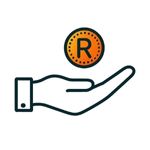
Microloans
Microloans are small, short-term loans intended to cover immediate financial needs. In South Africa, microloans typically range up to R8 000 and are repayable within six months. These loans are accessible to individuals who may not qualify for traditional credit products.
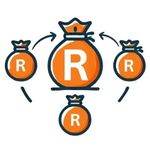
Debt Consolidation Loans
Debt consolidation loans combine multiple existing debts into a single loan with one monthly repayment. This approach can simplify financial management and potentially reduce the overall interest rate, depending on the terms offered by the lender.

Payday Loans
Payday loans are short-term loans intended to cover expenses until the borrower’s next salary payment. These loans are typically for small amounts and carry higher interest rates. Due to their cost, they should be used cautiously and only when necessary.
Unsecured loans come with their own set of perks, like no collateral required and faster approvals. Discover more detailed benefits in our breakdown of the advantages of an unsecured loan to see if it aligns with your borrowing needs.
DISCLAIMER: This article is for informational purposes only and does not constitute financial advice. Readers should consult a qualified financial advisor before taking out a loan or making credit-related decisions.

Who Is an Unsecured Loan Best For?
Unsecured loans are particularly well-suited to individuals who need quick access to funds without the ability or desire to offer collateral. They are ideal for those with a stable income and a good credit history, as lenders rely heavily on your creditworthiness to approve the loan.
This type of loan is often used for short- to medium-term financial needs, such as funding a home improvement project, covering unexpected expenses, or consolidating existing debts. If you’re looking to borrow a moderate amount and prefer a straightforward repayment structure without risking your personal assets, an unsecured loan could be a practical solution.
However, it’s important to note that because there’s no security involved, interest rates may be higher compared to secured loans. That means they’re best suited for responsible borrowers who can manage regular repayments and maintain a healthy credit profile.
Potential Pitfalls Of Unsecured Loans on Small Businesses
Unsecured loans offer convenience, but they also carry certain drawbacks that South African small businesses should evaluate carefully:
- Higher Interest Rates: Because these loans are not backed by any form of security, lenders typically charge elevated interest rates to cover their exposure. This can result in significantly increased borrowing costs, which may reduce overall business profitability.
- Short Repayment Periods: Loan terms commonly range from 3 to 24 months, which may not align with the cash flow cycle of every enterprise. If revenue from the loan-funded initiative takes time to materialise, meeting the repayment schedule may become a strain, potentially incurring further penalties.
- Additional Charges And Ambiguous Conditions: Certain lenders may include unexpected charges, such as fees for early settlement or administrative processing. Thoroughly reviewing the loan agreement is crucial to avoid surprises and misunderstandings.
- Excessive Dependence On Short-Term Finance: Frequently turning to unsecured loans for operational expenses can restrict future financial flexibility. While suitable in some cases, overuse may hinder a business’s capacity to fund longer-term strategies or investments.
- Lower Loan Amounts: Many unsecured lending products come with modest credit ceilings, limiting access to capital for larger-scale initiatives. Over time, responsible repayment behaviour may allow a business to access increased borrowing limits.
- Risk Of Ongoing Debt: Without careful financial planning, it is possible for a business to fall into a repetitive borrowing cycle, where new loans are taken simply to repay old ones. This pattern can become difficult to break and may jeopardise business stability.
Unsecured Loan Providers
Unsecured loans are financial products that do not require any form of collateral and are typically suited to addressing short-term needs or smaller borrowing requirements. Approval processes are usually fast, making them a practical option for those in urgent need of funds. Below are some of the better-known providers in South Africa:
| Provider | Loan Amount Range | Repayment Period | Interest Rate | Notable Features |
|---|---|---|---|---|
| Capitec Bank | R10 000 – R500 000 | 12 – 84 months | From 13.5% (based on credit) | Quick access to funds once approved; transparent process with no hidden fees. |
| African Bank | Up to R250 000 | 12 – 72 months | 15% – 24.5% (credit risk-based) | Ideal for debt consolidation; simplifies multiple debts into one monthly payment. |
DISCLAIMER: Interest rates and repayment terms vary between lenders and are influenced by individual credit profiles. The rates mentioned are indicative and may change without prior notice.

Tips For Managing Unsecured Debt Responsibly
Managing unsecured debt carefully is essential to maintaining financial stability, especially when dealing with multiple obligations or high-interest repayments. The following practical strategies can help South African borrowers stay in control:
Budget Before You Borrow
Before applying for an unsecured loan, assess your monthly income and existing financial commitments. Calculate how much you can afford to repay each month without compromising on essentials such as housing, groceries, and transport. This approach helps prevent over-indebtedness and ensures the loan fits comfortably into your budget.
Use Debit Orders To Maintain Consistent Repayments
Setting up a debit order ensures that repayments are made automatically on the due date. This minimises the risk of late or missed payments, which could result in penalty fees or a negative impact on your credit profile. Where possible, align your debit order date with your salary payment date to avoid shortfalls.
Limit Yourself To One Loan At A Time
Avoid taking out multiple unsecured loans at once. Relying on several short-term credit products can quickly escalate your debt burden, especially when different interest rates and repayment dates are involved. Sticking to a single loan helps simplify your financial obligations and makes it easier to track progress.
Track The Total Cost Of Borrowing
Always review the total repayment amount, not just the monthly instalment. Consider the interest rate, initiation fee, monthly service fee, and any optional credit protection costs. Understanding the full cost allows you to make an informed decision and prevents unexpected charges from affecting your finances later.
Conclusion
Unsecured loans in South Africa serve as a practical option for individuals and businesses needing access to funds without pledging any collateral. With flexible usage and relatively fast approval times, they are well-suited for handling a wide range of financial needs, from emergencies to education and debt consolidation. However, borrowers should approach unsecured credit responsibly, taking time to understand the full cost of borrowing, repayment terms, and potential risks. By following sound financial practices and choosing reputable lenders, borrowers can make informed decisions that support their financial wellbeing.
Frequently Asked Questions
A secured loan is tied to an asset, like a vehicle or real estate, that the lender has the right to seize if the borrower fails to repay. In contrast, an unsecured loan relies solely on the borrower’s credit history and income, without any property pledged as security.
Yes, but it may be more difficult. Some lenders may still approve the loan but offer a smaller amount or charge higher interest rates to compensate for the increased risk.
Unsecured loans can be used for a variety of purposes, including paying for medical expenses, school fees, home maintenance, or consolidating other debts into a single repayment.
Approval times vary by lender, but if all supporting documents are in order, many South African lenders can process and approve applications within 24 to 48 hours.
Yes, there are potential risks. These include higher interest rates compared to secured loans, shorter repayment terms, and the chance of falling into a debt cycle if borrowing is not managed properly.




